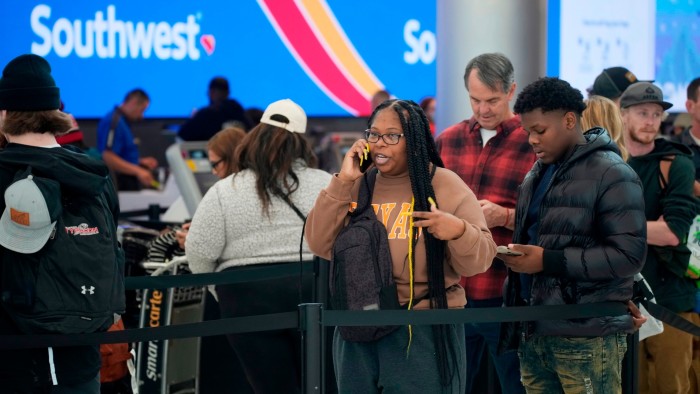Southwest Airlines Alters Baggage Policy: A Shift in Airline Practices
Recently, Southwest Airlines made headlines by discontinuing its long-standing “bags fly free” policy, introducing fees for checked luggage. This change marks a significant shift for the airline, which was once a champion of no-cost baggage. The decision prompts a larger question about the potential for US airlines to implement fees for carry-on luggage, similar to practices seen in Europe.
The Changing Landscape of Baggage Fees
Traditionally, US travelers have enjoyed the ability to check bags at no additional cost, allowing them to board with a more relaxed mindset. However, the landscape of air travel fees is evolving. In Europe, it is standard for airlines to impose charges for all but the smallest cabin bags, creating a different dynamic for passengers. This is not the case in the US, where many travelers try to navigate the fine line between maximizing cabin space and avoiding unexpected baggage checks.
Financial Implications of Baggage Fees
With Southwest’s decision to eliminate free checked bags, the airline joins a trend of airlines monetizing services that were previously complimentary. Other aspects of air travel, such as seat selection and priority boarding, have similarly transitioned to fee-based services. According to the US Department of Transportation, airlines collectively earned $5.5 billion from baggage fees alone last year, which indicates how ancillary charges are becoming a major revenue stream.
Passengers’ Perceptions and Preferences
While many passengers may initially perceive free carry-on baggage as a solid value, they often encounter frustrations that negate that perceived benefit. Recent surveys suggest that travelers value the reduction of travel-related stress over minimal cost savings, as declining satisfaction levels onboard are noted across the industry.
Potential Benefits of Carry-On Charges
Though additional fees are generally unpopular, the implementation of a carry-on baggage fee could potentially alleviate stress at airports and onboard. A proposed fee, for instance, might be around $50, which could incentivize passengers to check their bags instead. This would streamline boarding processes and reduce the anxiety of finding overhead storage for bulky luggage.
Understanding the Economic Reality
In reality, the notion of “free” luggage has always been somewhat misleading in an industry where operational costs, including fuel consumption related to weight, significantly impact pricing structures. For instance, a fully booked Southwest Boeing 737 Max 8 could have up to 1.8 metric tons of baggage in the overhead bins, contributing to higher overall operational costs.
Looking Ahead: What This Means for Airlines
Southwest’s shift in policy may reflect broader trends within the airline industry, particularly as they adapt to economic pressures and investor expectations. Following a period of negotiation with activist investors, this change suggests that airlines may be successful in balancing increased revenue through ancillary fees while potentially enhancing the travel experience for passengers who opt for additional services.
As the air travel industry continues to respond to economic pressures and changing consumer expectations, the potential introduction of carry-on baggage fees could represent both a challenge and an opportunity for airlines to rethink their service offerings.
For more insights and analysis on airline industry trends, stay tuned to our updates.


